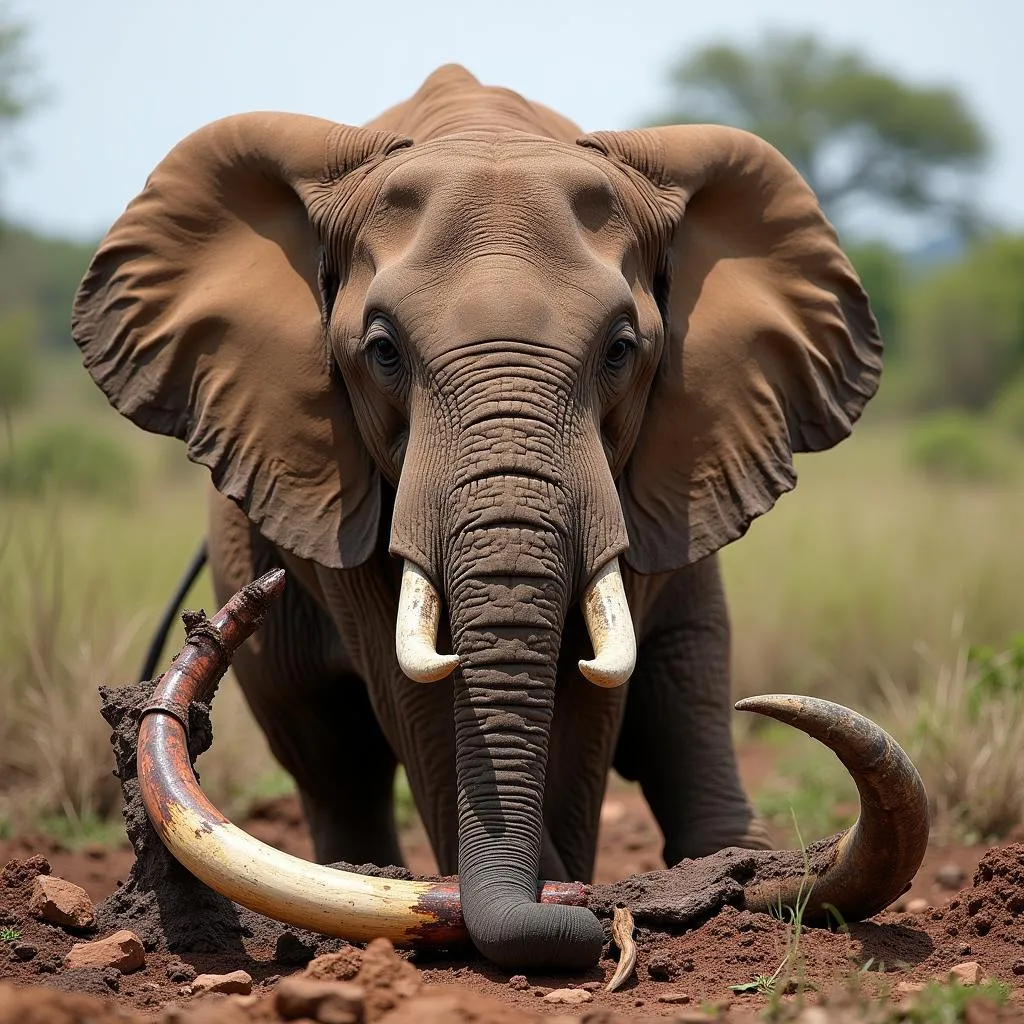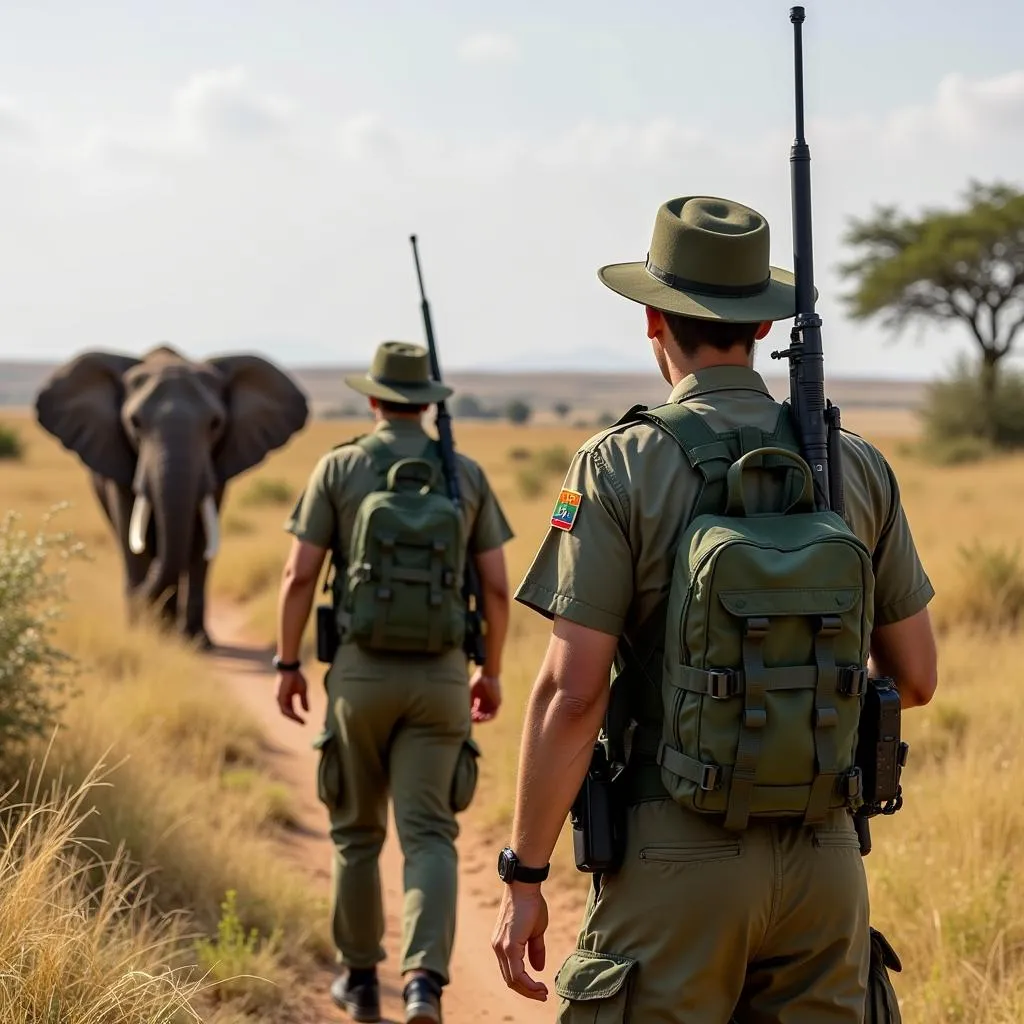The African Elephant: An Endangered Animal Facing a Looming Threat
The African elephant, a majestic symbol of the African savanna, is sadly classified as an endangered animal. Facing a multitude of threats, these gentle giants are struggling to survive, and their future hinges on our collective commitment to conservation.
The Plight of the African Elephant: Why Are They Endangered?
There are two main species of African elephant: the African bush elephant (Loxodonta africana) and the African forest elephant (Loxodonta cyclotis), both of which are currently listed as endangered. While their size might suggest invincibility, they are vulnerable to a number of threats, pushing them closer to the brink of extinction.
Poaching: The Ivory Trade’s Deadly Grip
The illegal ivory trade remains the most significant threat to African elephants. Driven by insatiable demand for ivory, poachers target these animals for their tusks, leaving behind a trail of devastation. Though international ivory trade bans are in place, they are often poorly enforced, allowing this illegal activity to thrive.
 African Elephant Poaching for Ivory
African Elephant Poaching for Ivory
Habitat Loss: A Shrinking Home for Giants
As human populations expand and development encroaches upon their natural habitats, African elephants are increasingly losing their homes. Deforestation, agricultural expansion, and infrastructure projects fragment their ranges, disrupting migration patterns and limiting access to food and water.
Human-Elephant Conflict: A Struggle for Space and Resources
With human settlements expanding into elephant territories, encounters between the two species are becoming increasingly common. This often leads to conflict, as elephants raid crops and damage property, and people retaliate, sometimes killing the animals.
Conservation Efforts: A Glimmer of Hope for the African Elephant
Recognizing the urgency of the situation, conservation organizations, governments, and local communities are working tirelessly to protect African elephants.
Anti-Poaching Initiatives: Protecting Elephants on the Ground
Anti-poaching patrols, law enforcement training, and community-based conservation programs are being implemented across Africa to combat poaching. These efforts involve deploying rangers to patrol elephant habitats, monitoring elephant populations, and working with local communities to reduce poaching incentives.
 Anti-Poaching Patrol Protecting African Elephants
Anti-Poaching Patrol Protecting African Elephants
Habitat Protection: Securing Space for Elephants to Thrive
Efforts are underway to establish and expand protected areas, such as national parks and wildlife reserves, to safeguard elephant habitats. These areas provide safe havens for elephants to roam freely and reproduce, contributing to the long-term survival of the species.
Addressing Human-Elephant Conflict: Finding Solutions for Coexistence
Conservationists are working to develop and implement strategies to mitigate human-elephant conflict. These initiatives include establishing elephant corridors to facilitate movement, developing early warning systems to alert communities of elephant presence, and promoting sustainable land-use practices that minimize conflict.
What Can You Do to Help?
While the challenges facing African elephants are significant, there are steps that each of us can take to contribute to their conservation.
- Support reputable organizations: Donate to organizations actively working to protect African elephants, such as the African Elephant Conservation Fund.
- Spread awareness: Educate yourself and others about the plight of African elephants and the threats they face.
- Be a responsible traveler: Avoid purchasing ivory products and choose tour operators that adhere to ethical wildlife viewing guidelines.
- Advocate for change: Support policies and legislation that aim to protect elephants and their habitats.
The African elephant, with its intelligence, social complexity, and vital role in ecosystems, deserves a future where it can continue to roam the savannas and forests of Africa. By working together, we can ensure that these magnificent creatures are not lost for generations to come.
FAQ
1. How many African elephants are left in the wild?
There are estimated to be around 415,000 African elephants left in the wild, but this number is declining due to poaching and habitat loss.
2. Why is ivory so valuable?
Ivory is prized for its beauty and durability, and has been used for centuries to make carvings, jewelry, and other decorative items.
3. Is it legal to buy or sell ivory?
The international trade in ivory is largely banned, but there are still illegal markets operating in some parts of the world.
4. What are the consequences of poaching African elephants?
Poaching not only decimates elephant populations, but also has devastating impacts on ecosystems and local communities.
5. How can I report suspected ivory trade?
You can report suspected ivory trade to your local wildlife authorities or to international organizations such as the Convention on International Trade in Endangered Species (CITES).
Need More Information?
For more information on African elephant conservation, visit:
Get Involved!
Contact us at +255768904061 or kaka.mag@gmail.com to learn how you can support African elephant conservation efforts. You can also visit us at our location in Mbarali DC Mawindi, Kangaga, Tanzania. We have a dedicated team available 24/7 to answer your questions and provide assistance.
